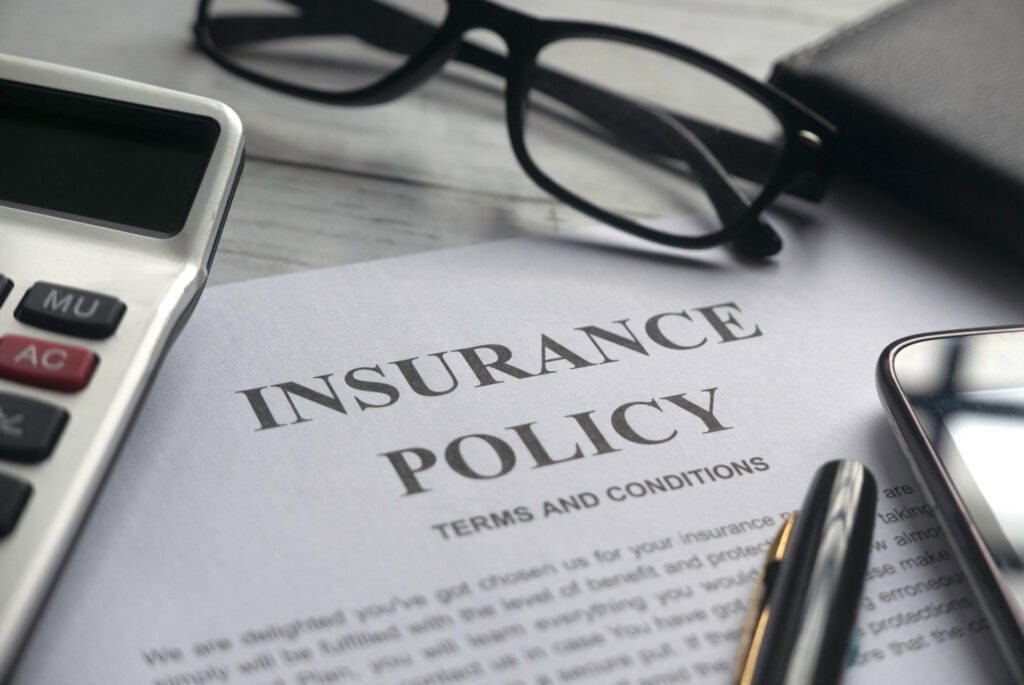As a business owner, you have a lot of responsibility for your customers, employees, property, and stakeholders. That’s a lot of weight on a person’s shoulders. The main aim of business insurance is to financially protect your business when unexpected events occur. As much as you can plan and prepare for the future, natural disasters, theft, and even a pandemic can show up leaving you in a difficult situation.
Business events and activities out of your control can have a huge impact on your business. The financial consequence of an issue can wipe out all your assets and ruin your company. Insurance is important for a business as it’s there to financially protect when something does happen.
In this article, we try to understand the different types of business insurance available and why you need to protect your business for the future.
Skip ahead to:
- Why is business insurance important?
- How to find business insurance
- 9 different types of business insurance to consider
Why is business insurance important?
It’s no understatement that a lot can go wrong in business. Whether it’s theft and employee injury or property damage and a data breach, these are just a few things that can occur. Without insurance, these issues can result in huge costs for your business that you will have to pay.
Mistakes can happen in the workplace. But you don’t want these mistakes to cost you more than they need to. Consider business insurance as a type of safety net to help protect your business. Here are some key statistics that show how business insurance is important for your company:
- Over 10 years, 40% of businesses will file a claim with their insurance.
- 3 in 4 small businesses experienced an insurable event in 2020.
- Only 2 in 3 small businesses carry business insurance.
- Older businesses are twice less likely to have business insurance.
Despite a large number of businesses experiencing an insurable event recently, there remains a large number of uninsured businesses. Unexpected events can cause great financial strain, and ultimately, provoke businesses to file for bankruptcy.
So, why do some businesses not buy insurance? Whether businesses are uninsured or underinsured, it appears there’s a lack of understanding and trust between businesses, insurers, and insurance agents and brokers. One survey found that 74% of businesses were relatively confident in their insurance needs. But 18% didn’t have business liability insurance and only 16% had cyber insurance. It’s clear that most businesses understand the importance of insurance, but their coverage is lacking for one reason or another.
How to find business insurance
As a small business, you have an overwhelming amount of insurance options. The first step in finding business insurance is assessing your business needs and risks. This could be industry-specific to your business. While there is a lot of crossover with insurance needs for businesses, you may need more or less coverage for specific areas. For instance, a shop that deals with members of the public will have a different coverage to say an online-only eCommerce store with a warehouse.
Shop around for business insurance. If you know other business owners in your industry, ask for recommendations. It’s a good idea to speak to multiple insurance companies. When looking for an insurance provider, you not only want the right coverage, but also a company that has good customer service and processes. How do you make a claim and how is the experience of making a claim with that provider? This is where a personal recommendation is useful.
Look for a small business insurance plan that can grow and scale with you. While it’s great to reassess each year, ideally, you choose a plan that can grow with you and has the flexibility your business needs. When shopping for insurance, try not to assume what is and isn’t covered. It’s easy to assume that something may be covered, but unless you double-check and read that it’s covered in your insurance policy, don’t make any assumptions. You want to cover all your gaps and read your policy, so you know exactly what to expect.
Business insurance and covid-19
In recent months, we’ve seen an ongoing battle between insurers and policyholders over coronavirus business insurance coverage, specifically pandemic-related losses. Businesses across several industries continue to file claims with their insurers over the business interruption. Many of these lawsuits and claims are ongoing. No doubt, the result will make both insurers and policyholders think differently about business interruption insurance and how businesses can protect their companies from unprecedented situations.
In terms of costs, rates can vary. If you can find a broker in a specific field, you are more likely to gain access to competitive rates. It’s also useful to seek advice from an expert in your field, as they will know what type of insurance your business needs and the type of coverage that’s most beneficial for you.
9 different types of business insurance to consider
Choosing the best type of insurance comes from understanding your business needs. The right insurance can protect you from a drop in sales or even a natural disaster. Depending on your business, you may need more than one type of policy.
The Customer
Engagement Playbook
for Your Fitness
Business
Discover more Below is a list of different types of insurance to consider. It’s a good starting point to help you navigate the world of business insurance. You may need one type of policy or a combination of business policies to support your business needs.
1. General liability
General liability insurance is a common one for all types of businesses. This type of insurance covers legal costs for events associated with injuries, accidents, or claims of negligence. General liability insurance protects against costs from bodily injury, slander, libel, medical expenses, and the cost of defending lawsuits. Essentially, it protects your business from claims that it caused injury, damage, or slander. In general, many business owners start with a Business Owner’s Policy (BOP) which includes general liability coverage, commercial property coverage, and business interruption insurance.
2. Cyber insurance
With data breaches in the news on a regular basis, cyber insurance covers you in the event of a data breach, malware, ransomware attack, or data loss. Cyber attacks are very real for all businesses. There are a few different types of cyber insurance, so depending on your business your needs will vary. Businesses that use and store sensitive data can benefit from cyber insurance. Cyber-attacks are an ever-increasing risk across multiple industries. Cyber insurance can help your business recover the costs associated with a security breach.
3. Commercial property insurance
Commercial property insurance focuses solely on your business property. So, this can be anything related to loss or damage of company property from events like theft, storm, fire, and vandalism. The insurance helps to protect equipment and property at your rented or owned company property. It will protect your furniture and equipment within the property. Some policies will include items outside the property too, like signage. Check your coverage as most commercial property insurance doesn’t cover floods. You will most likely have to take out a separate policy to cover flooring.
4. Commercial auto insurance
If you or your employees drive a company-owned car, then you will need commercial auto insurance. Personal insurance won’t help with claims if you’re driving a business-owned car. Commercial auto insurance can help to cover damage to property and bodily injury claims if your business causes an accident. If anyone in your company is driving for business, then commercial auto insurance is a must for your policy.
5. Workers’ compensation insurance
Most states set specific requirements for workers’ compensation insurance. If you don’t comply with your state’s laws and federal guidelines, you could end up with fines and penalties. Workers’ compensation insurance is there to help your employees if they get sick or have an injury from their job. It could pay for medical expenses and ongoing care, replace lost wages, and even pay for a funeral if life is lost because of their job. Accidents can happen and it’s important that your employees receive financial support in case of sickness or injury.
6. Public liability insurance
Another type of insurance to consider is public liability insurance. The insurance is specifically to cover businesses for claims for third parties, like customers, for injury or damage to property. It’s quite similar to general liability insurance but strictly focuses on property damage and bodily injury. General liability insurance tends to be slightly more expensive, but it has broader coverage. If your business mainly has on-premise risks like a restaurant or coffee shop, then public liability insurance may have what you need. But if you need more coverage, then general liability insurance has more range.
7. Business income insurance
Business income insurance is usually part of the Business Owner’s Policy. It’s also known as business interruption insurance. This insurance recovers a loss of income when you can’t open your business. If you can’t open your business, business interruption insurance could help cover lost income costs like rent, bills, or payroll. We’ve seen business interruption insurance in the news a lot more in recent months due to the pandemic.
Going forward, insurers will likely be more stringent on what business income insurance will cover. As many businesses were forced to close their doors due to government restrictions, insurers faced a ton of claims. Often, business interruption insurance doesn’t cover flood or earthquake disasters. Events like wind, fire, and lightning are likely to be covered. But make sure to always double-check your policy.
8. Professional liability insurance
Professional liability insurance is also known as errors and omissions insurance (E&O). Essentially, it helps to cover your business against lawsuits that claim you made a mistake in your services. Professional liability insurance helps you cover all the bases in your company. Mistakes happen in business, but that doesn’t need to drain you of your assets and ruin your business. If your customer or client thinks that you made a mistake that cost them financially, they could file a lawsuit against you. It also covers misrepresentation and inaccurate advice. Even if your business didn’t do anything wrong, a customer can still file a lawsuit and you would have to pay the legal fees to fight it.
9. Health insurance
Another type of insurance to consider is health insurance. While it doesn’t do anything to protect your business, it’s great for attracting employees. Deciding to offer health insurance is a big decision for any company. Employers can take an active role in healthcare by providing employees with a certain degree of healthcare coverage. While smaller businesses are not technically required to offer health insurance, health insurance benefits are a big deal to employees.
Health insurance tends to be at the top of the list of priorities when employees are looking for a job. That means that your health insurance plan is a huge driver of employee acquisition and retention. Happy and healthy employees tend to be more productive and efficient. While health insurance can be costly, it’s an investment that attracts and retains the caliber of talent your business needs to thrive.
In summary
There is insurance coverage for almost every type of risk and unforeseen circumstance. Coverage differs massively between policies and insurers. By understanding your specific business risks, you can determine the exact type of insurance your business needs. Your size and type of business will massively influence your insurance needs. But there’s a reason why insurance is important for business. When the cost of a lawsuit, natural disaster, or employee injury could have dire financial consequences, it’s crucial that you protect your business.














